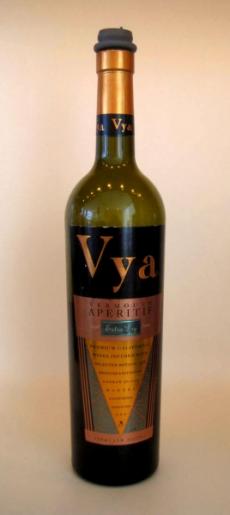
Dry vermouth is an aromatized, slightly fortified white wine with minimal or no sweetness. The word Vermouth comes from the German "wermuth", or wormwood. While there are many styles of dry vermouth, and no recipe is standard, dry vermouth is typically clear to pale yellow, herbal flavored, and very dry, with about 32-36 proof.
Dry vermouth (also known as French vermouth) was invented by Joseph [ingredient=noilly-prat Noilly] in 1813, though many countries now make it.
Dry vermouth is typically more fragile than other styles. You should always buy the smallest bottle you can, and drink the vermouth within a week or two.
Some common brands of dry vermouth include [ingredient=noilly-prat Noilly Prat], [ingredient=dolin Dolin], [ingredient=martini-rossi Martini & Rossi], [ingredient=vya Vya], and [ingredient=cinzano Cinzano].
Some popular cocktails containing Dry vermouth
- The Lady Chesdin — Gin, Dry vermouth, Orange bitters, Peychaud's Bitters, Bitters, Celery bitters, Cucumber, Onion, Sugar cube, Lime
- Against the Grain — Gin, Dry vermouth, Pear eau de vie, Crème de Violette, Apricot liqueur, Lemon peel
- Aperitivo Julep — Dry vermouth, Peach liqueur, CioCiaro, Mint
- Cherchez Le Parc — Cognac, Dry vermouth, Herbal liqueur, Cassis, Suze, Absinthe, Lemon peel
- Cusp of Summer — Cachaça, Dry vermouth, Strawberry shrub
- Spyglass — Gin, Dry vermouth, Aquavit, White Crème de Cacao, fennel liqueur, Lemon peel
- Price of Prudence — Gin, Aromatized wine, Dry vermouth, Honey Liqueur, Bitters, Lemon peel
- Monkey Island — Dry vermouth, Gin, Damson gin liqueur, Khoosh Bitter
- Safety Dance — Dry vermouth, Bianco Vermouth, Soda water, Lemon juice, Tea syrup, Lemon peel
- Jerezana — Amontillado Sherry, Manzanilla sherry, Sweet vermouth, Dry vermouth, Orange bitters, Vanilla syrup